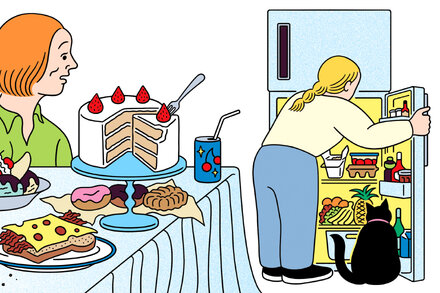
The question of whether and how to discuss a daughter’s weight is a complex and often sensitive issue for parents, fraught with good intentions that can sometimes lead to unintended negative consequences. While parental concern for a child’s health and well-being is natural, health professionals and child development experts widely advise extreme caution in directly addressing a child’s weight, particularly with adolescent girls.
Parents often approach this topic from a place of love and concern, worrying about their daughter’s physical health, potential bullying, or future challenges. However, research and clinical experience suggest that direct comments about a child’s weight, even if well-meaning, can be counterproductive and potentially harmful.
The Risks of Weight-Centric Conversations
Experts in child psychology and eating disorder prevention highlight several risks associated with focusing on a daughter’s weight:
- Body Dissatisfaction: Girls, already susceptible to societal pressures regarding appearance, can develop a negative body image when their weight is singled out for discussion. This dissatisfaction is a significant risk factor for mental health issues.
- Increased Risk of Eating Disorders: Research indicates a strong correlation between parental weight talk and the development of disordered eating behaviors, including restrictive eating, binge eating, and bulimia.
- Lower Self-Esteem: Comments about weight can erode a child’s self-worth, making them feel ashamed or inadequate, regardless of their actual health status.
- Damaged Parent-Child Relationship: The child may perceive the parent as critical or unsupportive, leading to decreased trust and openness.
- Focus on Appearance Over Health: Emphasizing weight can shift a child’s focus from genuine health and well-being to superficial appearance, fostering an unhealthy relationship with food and exercise.
Expert Recommendations: Shifting the Focus to Health Behaviors
Instead of discussing weight directly, health professionals advocate for a holistic, health-focused approach that emphasizes behaviors rather than numbers on a scale. Pediatricians and registered dietitians commonly advise:
- Promote Healthy Habits as a Family: Encourage balanced nutrition, regular physical activity, adequate sleep, and stress management for the entire family, rather than singling out one child.
- Focus on “Feelings” Over “Looks”: Talk about how healthy choices make one feel – energetic, strong, focused – rather than how they might change appearance.
- Encourage Body Positivity and Neutrality: Help daughters appreciate their bodies for what they can do, fostering respect for their physical form regardless of size.
- Avoid Diet Talk: Refrain from discussing personal diets, calorie counting, or labeling foods as “good” or “bad.” Promote intuitive eating, where children learn to listen to their body’s hunger and fullness cues.
- Provide Nutritious Options: Make healthy foods readily available at home and involve children in meal planning and preparation.
- Model Healthy Behaviors: Children learn by example. Parents who demonstrate a healthy relationship with food, exercise, and their own bodies provide a powerful positive influence.
If there are significant health concerns related to a daughter’s weight, such as diagnosed medical conditions, or if signs of disordered eating are present, the consensus among experts is to seek professional guidance. A pediatrician can assess health status, and a registered dietitian specializing in pediatric nutrition or a therapist experienced in eating disorders can provide tailored, supportive, and safe interventions without stigmatizing the child or focusing solely on weight.
Ultimately, the goal is to foster a daughter’s overall well-being, both physical and psychological, in a supportive and loving environment. A thoughtful, health-centric approach that prioritizes open communication and body acceptance is generally considered more beneficial than direct conversations about weight.
Source: Read the original article here.





